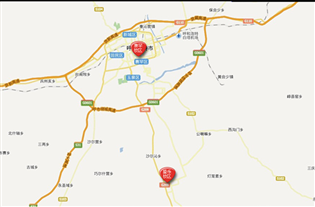Center of Education for Sustainable Development
The Center of Education for Sustainable Development of Inner Mongolia Normal University was established in early 2005. It was one of the 21 centers approved by the Ministry of Education and World Wildlife Fund. After a decade of development, the center has evolved to be an academic institution that has complete range of functions including personnel training, academic research and exchange of information. In 2012, the center was authorized as a regional center of expertise (RCE) on education for sustainable development (ESD) in Hohhot by UNESCO and United Nations University. In December, 2016, the center was included in a list published by the Ministry of Environmental Protection to be one of the 20 national training bases for environmental protection.
Academic research
Ever since the center was established in 2005, it has received a lot of support from the Ministry of Environmental Protection, Ministry of Education, UNESCO, World Wildlife Fund, Department of Environmental Protection of Inner Mongolia Autonomous Region and Department of Education of Inner Mongolia, and undertaken seven international cooperative projects, three projects supported by the National Social Science Foundation, one national education research project and four projects supported by the Social Science Foundation of Inner Mongolia. It has organized nine regional, three national and two international forums on ESD. It has also published seven textbooks on ESD training and 40 monographs in ESD.
Fund received
It has received a fund of over two million yuan ($300,000).
Be socially responsible
The center has provided special training on ESD for 3,000 teachers from universities, middle schools and primary schools for more than 20 times. It has established over 100 schools to develop ESD for middle and primary schools, and 10 schools to develop ESD for colleges and universities. It has also showed great support for college students to take active part in environmental protection. Besides, it has established a network that is available to 12 leagues and cities in the region to develop local ESD.
External exchanges
The center keeps close relation with several countries and regions such as Sweden, Japan, Republic of Korea, Mongolia, Russia and Taiwan. It has been invited to high-level international academic conference for several times such as the Global Conference on ESD and Asian-Pacific Conference on ESD. In 2013, the center was recognized by UN as RCE for its outstanding contribution in innovation on ESD.



 Print
Print Mail
Mail

